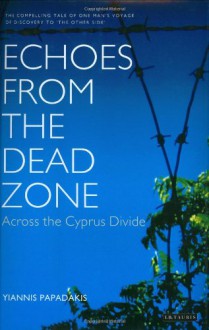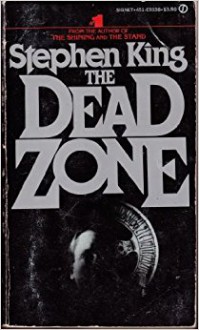
This is an excellent book, anthropology mixed with memoir, by an author from divided Cyprus. Coming to this book knowing virtually nothing about Cyprus, I learned a lot about the country. But this is such an insightful look into conflict generally and the ways groups of people become entrenched in and justify their own positions that I think anyone interested in the psychological side of political conflict would appreciate it.
Cyprus has long been inhabited by both ethnic Greek and ethnic Turkish populations, and belonged to both the Byzantine and Ottoman Empires. In the 20th century, it became a British possession, and groups that had historically lived well together grew more distant, both leaning on their historical motherlands for support. After independence, many Greek Cypriots wanted to become part of Greece, and unrest led to atrocities against Turkish Cypriots in the 1960s, with many of them relegated to ghettos. In 1974, a Greek-sponsored coup led to Turkey invading the country and carving out the northern part for Turkish Cypriots – leading to atrocities against Greek Cypriots who lived there and were killed or forced from their homes. Today, almost 50 years later, the Turkish Republic of Northern Cyprus continues to exist in fact but to be recognized only by Turkey and seen as occupied territory by everyone else. Negotiations to reunite the country have always broken down, and from this book it’s easy to see why.
Yiannis Papadakis is a Greek Cypriot, who after studying abroad returned home in 1990 to begin studying his country. One of the things that makes the book so interesting is that it is as much about his journey, being forced to confront his own indoctrination and biases, as about the people he meets. He visits Turkey to learn Turkish (after some serious initial misgivings about his safety there, he realizes Turks are regular people too), lives with Greek Cypriots near the border and then crosses over to the Turkish side. (I was initially thrown by the way he talks about the Turkish side, making reference to “pseudo-officials” wearing uniforms decorated with “pseudo-flags,” but this turns out to be representative of his opinions at the time the research began, not by the time he wrote the book.) Eventually he winds up living in a mixed village in the “dead zone” between the two sides, where everyone is suspected of being a traitor.
Cyprus’s history and politics are complicated, as is the author’s analysis, so anything I say here will no doubt oversimplify. But there’s an incredible amount of food for thought here. About the ways both sides manipulate history – not necessarily by lying, but by beginning the tale with their own flourishing empire that’s brought down through the wrongdoing of the others; by focusing only on their own side’s pain, emphasizing their own dead and refugees while refusing to acknowledge wrongs against the others; by paying attention to only the extremists on the other side, painting their views as everyone’s view’s; by both defining their own side as the threatened minority. About the ways people refuse to understand each other, about the ways propaganda is used, about the repercussions this conflict has in people’s lives. The author sees and hears some striking things, like the refugee family in Northern Cyprus that moved into a Greek Cypriot home, and kept all the furniture and family photos out in case of the prior owners’ return.
He’s also able to draw a lot of connections between the two sides: the two right wings have far more in common than either would ever admit, both invested in insisting upon the evil of the other while bringing their own side closer to the motherland. The two left wings are also similar and seem ready to reach out to each other and bring peace, though when the opportunity comes, they too choose political opportunism. In the end there’s plenty of blame to go around, and the author doesn’t absolve anyone.
At any rate, I found it an insightful and fascinating book. While the page count is short, there’s a lot of text on each page, so it isn’t necessarily a quick read. But it’s broken up into short sections, often just a couple pages long, and the writing is accessible. It was published by a small, academically-oriented publisher, but has a lot to offer the casual reader; if it had gone through a big publishing house I could see it as a well-known work of popular nonfiction. Only in a couple of places does the author go off on short tangents that seem to be pet interests of his (the myth and symbology of Aphrodite), and his narrative provides a detailed view of Cyprus and his own journey of discovery about his country and people. I would definitely recommend this one if you can get your hands on it.

 Log in with Facebook
Log in with Facebook 







